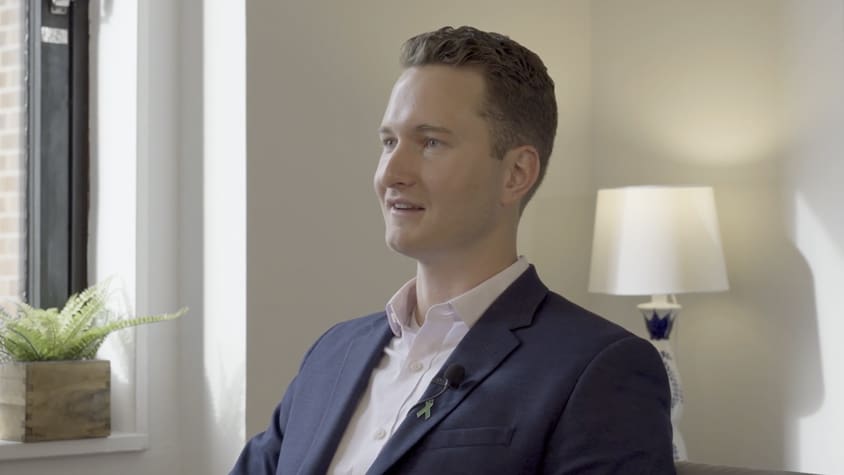I remember being diagnosed at 18 years old and feeling like the only young person on the planet with a disease. I had never heard of IgA nephropathy (IgAN) and didn’t know a single person with it. I was so self-conscious about having IgAN because everyone around me was going to parties and enjoying the carelessness of youth. Meanwhile, I was making dietary restrictions and lifestyle changes, going to frequent nephrologist visits, and wondering how long it would be until I needed a kidney transplant. I used to think that if I shared my story with people, they’d think I was weird or wouldn’t want to be friends with me. The reality is that I couldn’t have been more wrong.
The moment it all changed for me
A few months after my diagnosis, I met another person with IgAN through the IgA Nephropathy Foundation. I was struggling with my mental health at the time, so my mom thought it might help to connect with someone who knew what I was going through. I’ll never forget how it felt to talk with someone who had walked in my shoes and had empathy for me. I didn’t have to hide anymore. I wasn’t a freak. We are like family to this day.
I wish I could go back in time and save myself from the 3 months I spent trying to deal with this disease on my own. I was so scared that I didn’t have the energy or confidence to do it myself, and I’m forever grateful that my mom stepped up as my caregiver and introduced me to the IgAN community. I’ve come to learn that mental health can be one of the biggest challenges of having IgAN for some people. Over the years, I’ve slowly become more comfortable sharing my story and getting involved in the IgAN community. Aside from therapy, I can confidently say that the relationships I’ve made within the community have had the largest positive impact on my mental health and overall outlook on life. Today, I’ve made more friends than I can count because of IgAN.
Knowledge is power
You may feel a sense of blame and anger when you are first diagnosed. Because IgAN is a rare disease, it’s not uncommon to receive incomplete information about how to live with IgAN or the origins of the disease. The support I gained from the IgAN community has given me the strength and tools I need to feel more confident in my journey.
I learned how to advocate for myself and find a nephrologist who understands the disease. When I was diagnosed, I was told that I would need a new kidney in about 10 years and that there was nothing I could do to combat the disease. I had labs taken and was given a spreadsheet full of medical terminology that meant nothing to me. I was so lost.
Nine years later, my kidney function is in a healthy range, and I have partnered with a nephrologist who specializes in IgAN to make sure I’m making the right decisions. I have done a lot of research on my own and have asked my nephrologist many questions to understand my labs and how my unique IgAN journey is progressing. Throughout the years of meeting countless people living with IgAN, misinformation is a recurring theme. I can’t overstate the importance of finding credible sources of information on IgAN.
Where do we go from here?
In the time I’ve lived with this disease, I have seen incredible advancements in treatment options and more attention from pharmaceutical companies. Nine years ago, there were no treatments for IgAN and knowing that made my diagnosis even scarier. Thankfully, the story has changed. Today, there are FDA-approved treatments available to patients. I truly feel more optimistic as an IgAN patient than ever before because of these advancements. The future has never looked brighter for us.
— Chris, a person living with IgA nephropathy
